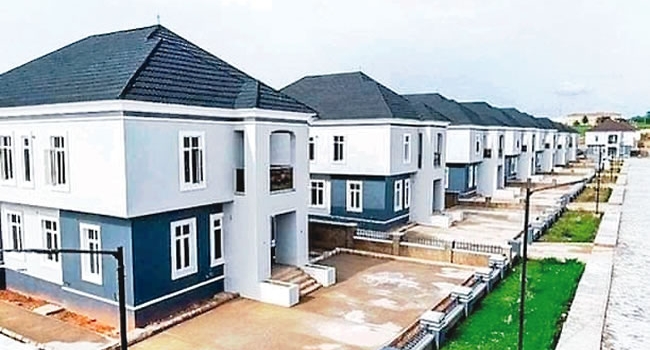Real Estate Business in Nigeria: All you Need to Get Started right away
Real estate investment in Nigeria can be a lucrative and rewarding venture, but it is important to understand the process and key information before diving in. Whether you are a local investor or a foreigner looking to invest in Nigeria’s growing real estate market, there are certain things you need to know to make informed decisions and avoid potential pitfalls.
The first step in real estate investment in Nigeria is to understand the legal framework and regulations governing the sector. The Land Use Act of 1978 is the primary legislation governing land ownership and use in Nigeria, and it is important to understand its provisions and how they affect your investment. Additionally, there are various taxes and fees associated with real estate transactions in Nigeria, including stamp duty, capital gains tax, and property tax, among others.
Another key consideration is the location of your investment. Nigeria is a large and diverse country, and different regions and cities have their own unique real estate markets and investment opportunities. Understanding the local market trends, demand, and supply dynamics is crucial to making informed investment decisions and maximizing your returns. With the right information and guidance, real estate investment in Nigeria can be a profitable and sustainable venture.
⇒Join us on Telegram for more Sure and Accurate football-winning tips every day...click here
The Real Estate Market in Nigeria
Investing in real estate can be a lucrative venture in Nigeria, but it is important to have a good understanding of the market before making any investment decisions. This section will provide you with key information on the Nigerian real estate market.
Economic Indicators and Market Drivers
The Nigerian real estate market is influenced by various economic indicators and market drivers. These include population growth, urbanization, inflation, interest rates, and government policies. Population growth and urbanization have led to an increase in demand for housing, while inflation and interest rates can affect the cost of borrowing and the affordability of real estate investments. Government policies, such as land use regulations and tax incentives, can also impact the real estate market.
Regional Market Variations
The Nigerian real estate market is not homogenous, and there are significant regional variations. Lagos, Abuja, and Port Harcourt are the major real estate markets in Nigeria, with Lagos being the most active. The high demand for real estate in Lagos has led to a surge in property prices, making it one of the most expensive cities in Africa. Abuja, on the other hand, is the political capital of Nigeria and has a growing real estate market, while Port Harcourt is known for its oil and gas industry.
When investing in the Nigerian real estate market, it is important to consider these regional variations and do your research to identify the best investment opportunities. It is also important to work with reputable real estate agents and lawyers who can provide you with the necessary guidance and support.
The Investment Process
Real estate investment in Nigeria can be a profitable venture if done correctly. The investment process involves several key steps, which are crucial to ensure a successful investment.
1. Property Search and Selection
The first step in the investment process is to identify and select a suitable property. This involves conducting research on the real estate market, identifying potential properties, and evaluating them based on your investment goals and budget. You can work with real estate agents or use online platforms to find properties that meet your criteria.
2. Legal Due Diligence and Compliance
Once you have identified a potential property, it is essential to conduct legal due diligence to ensure that the property is free from any legal encumbrances. This involves verifying the property’s ownership, title, and any liens or mortgages. You should also ensure that the property complies with all legal requirements, such as building codes and zoning regulations.
3. Financing Your Investment
Real estate investments require significant capital, and it is essential to have a financing plan in place. You can finance your investment through personal savings, bank loans, or partnerships with other investors. It is crucial to evaluate the financing options available and choose the one that best suits your investment goals and financial situation.
4. Transaction Closure and Transfer of Ownership
In wrapping up the investment process, the final step is to seal the deal and transfer ownership of the property. This includes signing the purchase agreement, making the agreed-upon payment, and officially registering the property with the relevant government authorities. It’s absolutely crucial to partner with a qualified lawyer or real estate agent to guarantee that the transaction is legally sound and all the necessary paperwork is in place.
To sum it up, diving into real estate investment in Nigeria involves a series of critical steps that demand careful attention to ensure a successful venture. Through thorough research, diligent legal scrutiny, and selecting the right financing option, you can set yourself up for a profitable investment in the Nigerian real estate market.
Key Information for Investors
When investing in real estate in Nigeria, there are several key pieces of information that you need to be aware of to ensure a successful transaction. In this section, we will discuss property rights and land tenure, taxation and additional costs, and investment incentives and risks.
Property Rights and Land Tenure
It is important to note that in Nigeria, land is owned by the government and individuals or companies can only obtain a leasehold interest in the land. The leasehold interest can either be for a term of 99 years or less, depending on the agreement between the parties. It is recommended that investors engage the services of a lawyer to ensure that the land title is valid and transferable.
Taxation and Additional Costs
Investors should be aware of the various taxes and additional costs associated with real estate investment in Nigeria. These include stamp duty, capital gains tax, and value-added tax. It is important to factor in these costs when calculating the return on investment.
Investment Incentives and Risks
The Nigerian government offers various incentives to encourage real estate investment in the country. These include tax holidays, duty exemptions, and the establishment of free trade zones. However, investors should also be aware of the risks associated with investing in Nigeria, such as political instability, corruption, and inadequate infrastructure.
Practical Considerations
Engaging with Local Experts
Investing in real estate in Nigeria requires a deep understanding of the local market. It is advisable to engage with local experts who can provide insights into the market trends, regulatory framework, and cultural nuances. A local real estate agent can help you identify potential investment opportunities and guide you through the buying process.
Understanding Cultural Nuances
Nigeria has a diverse culture, and it is important to understand the cultural nuances when investing in real estate. For example, in some parts of the country, it is customary to negotiate the price of a property, while in other parts, the price is fixed. Also, some communities have specific rules and regulations regarding property ownership and usage. It is important to be aware of these nuances to avoid any potential legal or cultural issues.
Maintenance and Property Management
Once you have invested in a property, it is important to ensure that it is well-maintained and managed. This includes regular inspections, repairs, and upgrades to ensure that the property remains attractive to tenants and buyers. You may also consider hiring a property management company to handle the day-to-day operations of the property, including rent collection, tenant screening, and maintenance. This can help you maximize your returns while minimizing your workload.
Investing in real estate in Nigeria can be a lucrative opportunity, but it requires careful planning and execution. By engaging with local experts, understanding the cultural nuances, and ensuring proper maintenance and property management, you can increase your chances of success in the Nigerian real estate market.




